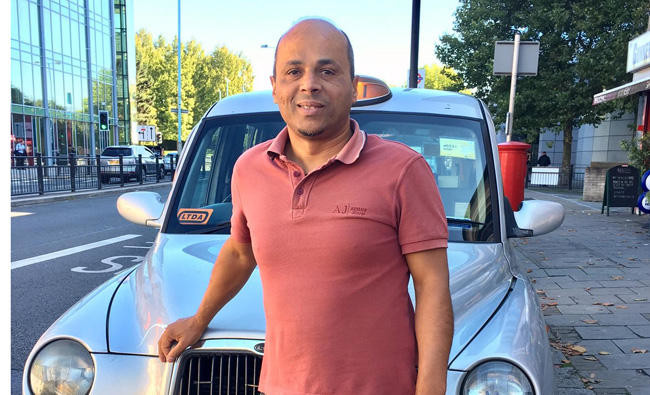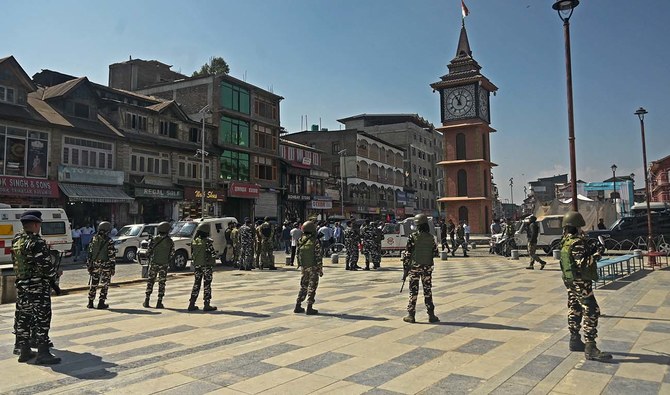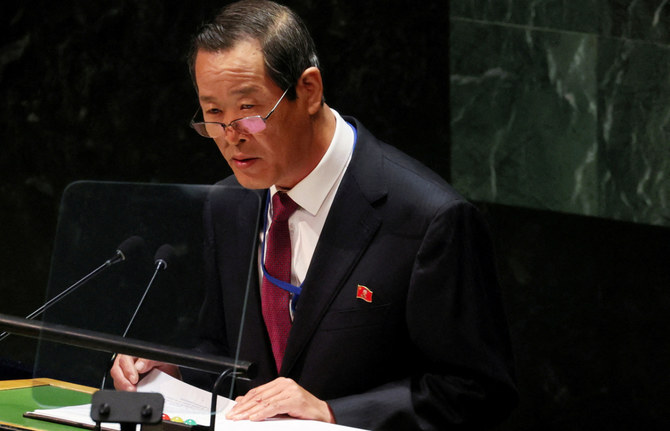LONDON: From clubbers to commuters, Londoners are contemplating an Uberless future.
A decision by the city’s transport regulator to strip Uber of its license for “a lack of corporate responsibility” has stunned a city that relies heavily on an app that has become so rooted in its culture that it is now a synonym for taxi.
For many now accustomed to ordering an uber at the touch of a button, there is no realistic alternative that caters to today’s culture of convenience.
“It’s a joke, what do the government think they are doing,” asked Londoner Ross Matheson.
A statement released by Transport for London (TfL) on Friday cited Uber’s approach to reporting serious criminal offenses, obtaining medical certificates and conducting driver background checks as grounds for rejecting the company’s application for a new license when the existing one expires on Sept. 30.
Without Uber, I'm going to be at a bus stop late at night, on a night bus, walking home from the bus stop that is NOT right outside my house
— Charlie (@CharlieEdmunds) September 22, 2017
TfL also raised concerns surrounding Uber’s use of Greyball software to block regulatory bodies from gaining full access to the app.
Uber, which said it would challenge the decision, has 21 days to appeal and will continue operating during this period.
In a statement the company said “Transport for London and the Mayor have caved in to a small number of people who want to restrict consumer choice.
“If this decision stands, it will put more than 40,000 licensed drivers out of work and deprive Londoners of a convenient and affordable form of transport.”
London’s Mayor Sadiq Khan expressed his full support for the decision, saying that “all companies in London must play by the rules and adhere to the high standards we expect.”
Uber has faced criticism for failing to take sufficient measures to ensure passenger safety. Last month the company came under fire after a Freedom of Information request revealed that it had failed to report sex attacks by drivers.
Inspector Neil Billany of the Metropolitan police’s taxi and private hire team said that Uber was prioritising its reputation over concerns for public safety.
However, many female passengers said they feel more secure taking Uber door-to-door than using public transport, particularly after dark.
“Without Uber, I’m going to be at a bus stop late at night, on a night bus, walking home from the bus stop that is NOT right outside my house,” wrote Charlie Edmunds on Twitter.
A petition started by Tom Elvidge, Uber’s general manager, to “Save Your Uber in London” had gained more than 130,000 thousand signatures by 4pm.
Sign the petition to save your Uber in London and 40000 drivers’ livelihoods https://t.co/tKcbZNw9Wp #SaveYourUber
— Uber UK (@UberUK) September 22, 2017
“This ban shows the world that London is far from being open and is closed to innovative companies, who bring choice to consumers and work opportunities to those who need them,” he said.
But it’s not all bad news for London passengers concerned about the high price of black cabs. Uber rival Mytaxi was quick to announce a 50 percent fare cut in the wake of the announcement.
Up to 50% off fares now! We're undercutting UberX on the news they're not fit & proper to operate. See T&Cs: https://t.co/5KeWzSMaMD
— mytaxi uk (@mytaxiuk) September 22, 2017
Uber has faced criticism from unions and legislators in London over pay and working conditions for its drivers and many passengers have found themselves increasingly torn between reliance on the ride-hailing app’s service and mounting concern over the treatment of its drivers – many of whom earn less than the minimum wage.
“It’s tricky to decide how I feel about this decision. Technologies should add benefit to cities but not be abused and companies like Uber cannot operate outside the rules,” said Uber passenger Lucy Lines.
“I feel desperately sorry for the drivers who are simply doing their job and abiding by policies stipulated by Uber and now have their livelihoods threatened.”
For the drivers of London’s traditional black cabs, the decision is long overdue.
“The last few years have been really hard. Nearly all the business has been taken by Uber. A lot of drivers have given their badge back,” said Jafar Hadj-Lakehal, 49, an Algerian who has been driving a black cab in London for almost seven years.
Chawki Hadjlakehal, 50, a London cabbie for more than nine years, was surprised and pleased by the move.
“Because of Uber we have to do a lot more hours and work six days a week to make ends meet. Applications to become a London taxi driver are way down and lots of the minicab companies also have closed,” he said. “I think it’s the end of Uber in London.”



















